At first glance Jung's books can look complex, too abstract and without apparent utility, they seemed so to me for many years... a real shame, because his theories would have been of great help to me; specially those dealing with the Invisible World.
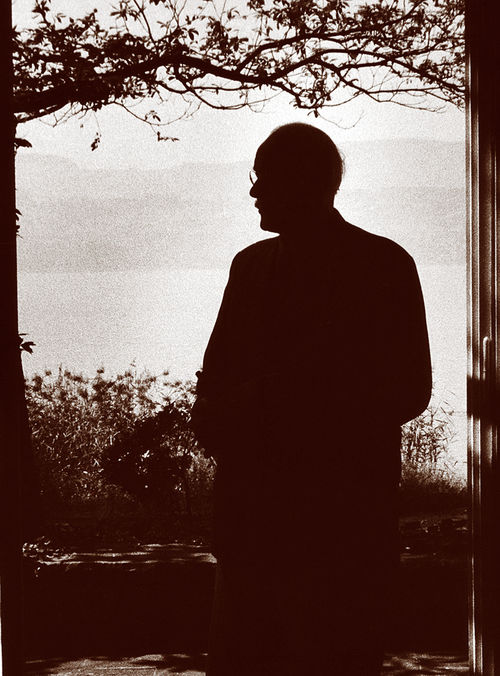
In short, Jung was born in Basel (Switzerland) into a poor family in 1875, the son of a crazy mother and an evangelical preacher of little success, he hadn't an easy or especially happy childhood, his parents had many problems inside and outside home... Jung himself suffered from various mental problems in his teens due to the hostile environment where he lived.
Even so, he managed to study medicine and specialize in psychiatry, which at that time (1895) was something new and unknown; Jung was trying to connect the biological with the spiritual part of human life.
His father died the year after beginning his studies at the university, in such a way that he only managed to finish them thanks to the help of friends and family.
As soon as he finished university he began to work in a psychiatric hospital (1900), where he came into contact with Freud and little by little began to develop his own theories, it is significant that his first publication was entitled "About the psychology and pathology of the so-called hidden phenomena", and it's a well known fact that throughout his life Jung had a great personal interest in everything related to parapsychology and others things from the Invisible World, trying throughout his works to explain these "inexplicable phenomena" in a scientific way.
But the most decisive part for his life and his work occurred when he was only 28 years old: he married the daughter of a fairly wealthy Swiss industrialist, who two years later would die leaving the young couple a good stake in a Swiss watch factory (IWC Schaffhausen) from which they could live comfortably for decades, until Jung became a world-renowned figure.
Here is the young couple; his wife, Emma, with time would become a respected psychologist in an almost self-taught way, maybe making good once again the saying " behind every great man there is a great woman":
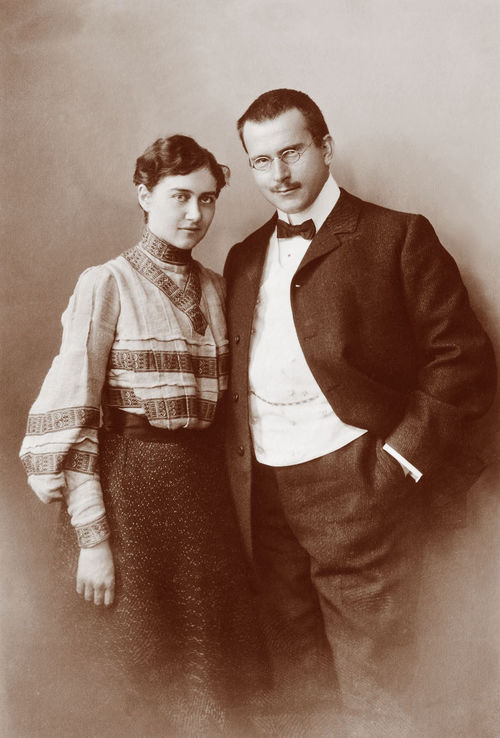
The fact is that, thanks to not having to make a living in a conventional way, Jung was able to advance much exploring theories that otherwise would have meant being marginalized from academic circles and end up starving.
Not surprisingly, in 1912 he had a strong run-in with Freud and the official circles of psychoanalysis of the time, due to Jung's new theory of the unconscious; in other circumstances, that would have meant serious problems in his life at all levels, but as ultimately he lived from his watch factory, he was able to continue consulting at home according to his own theories and without worrying about others.
This was the house where Jung lived with his wife and children near Zurich; it's open to the public and can be visited:
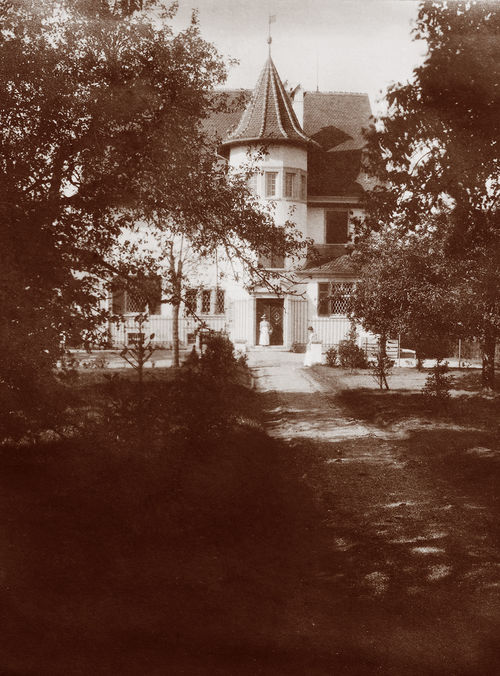
It is easy to imagine that looking out of those windows at Lake Zurich, meditating on the reaction of Freud and the establishment of the time to his new theories, Jung could think that of "they have the clock, but I have the time, even a whole clock factory!".
In fact, between 1912 and 1921 Jung had a time of isolation on a professional and intellectual level where many dramatic things happened together: the First World War, the rejection of mainstream psychiatrists and psychoanalysts, and to top it off he went through a kind of "temporary schizophrenia" that he managed to get out of by relying on his family and his watch factory.
As any mentally ill person knows, being poor is very different from being rich, in the first case they call you "crazy", and in the second you are a "misunderstood genius", an "eccentric", or simply "someone who is having a hard time".
And it is not the same to be rejected and misunderstood while discussing it with imaginary friends in this little room overlooking Lake Zurich than in a humble hostel room:
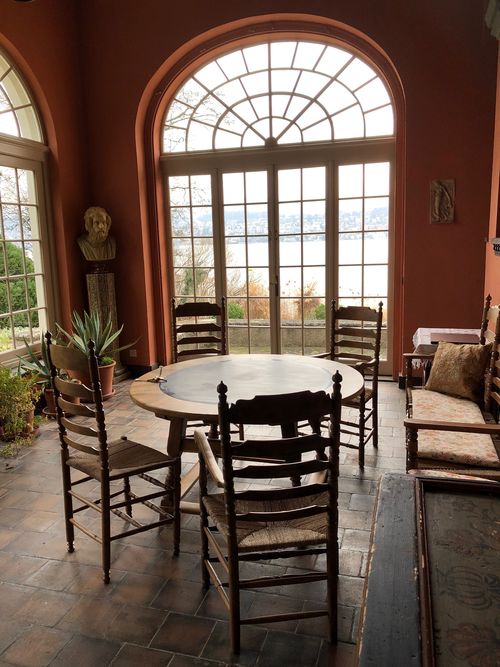
In Jung's case, he invested a good part of his time during these dark years in writing and painting his so-called Red Book , a kind of diary in medieval format in which he somehow sowed the seed of what would later become many of his most interesting and recognized theories that made him famous.
In other words, he was able to unleash his creativity and spiritual/intellectual potential, and from there came one of the most innovative and refreshing works of the 20th century; a good example for rich people, who sometimes have more financial resources than Jung had but lack some of his intellectual wealth.
The truth is that after this dark years Jung and his theories began to gain relevance; in 1921 he published "Psychological Types" and as a result of its success it followed an endless publishing of works and traveling around the world.
Here you can see him in his home studio:
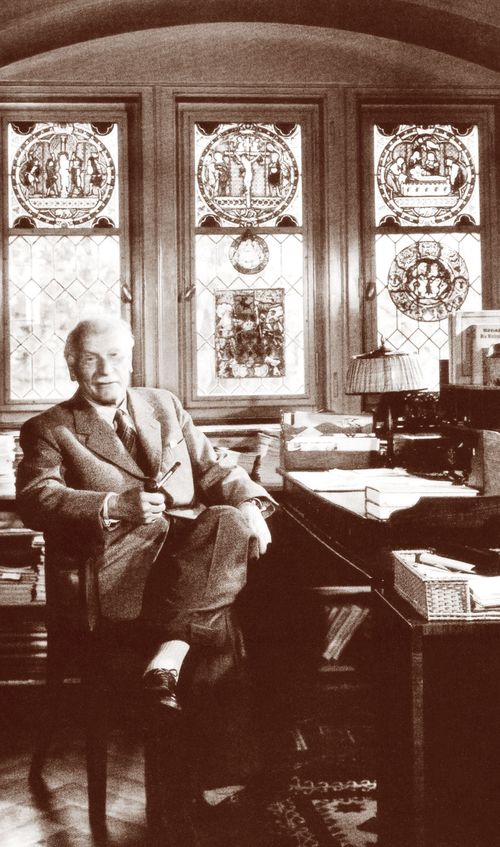
This studio stays today almost as he left it, his house is now a museum:
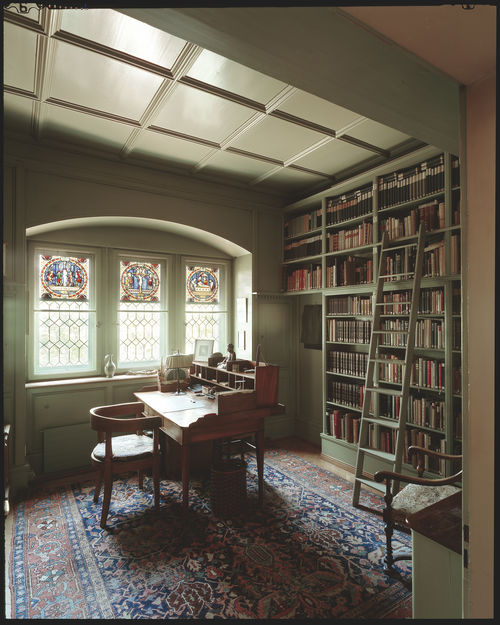
I really think that Jung tried to seek "the spiritual truths of life" the best he could; in fact he made many trips with that intention, both to Africa and India; it's from those journeys that his comparisons between "primitive" and "modern" man evolved.
In this photo, it's worth highlighting the tapestry in the foreground with oriental motifs:
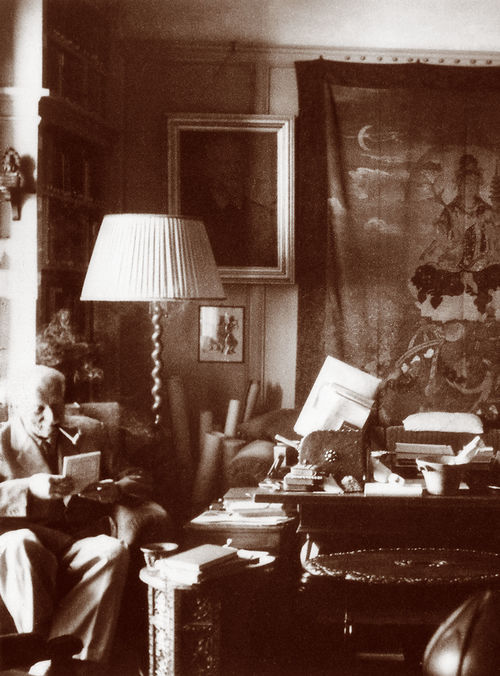
It's also curious that Jung made a great friendship with Richard Wilhelm, he even wrote the prologue for his German version of the I Ching, and reading Jung's memoirs it is easy to see that they were united by a deep intellectual affinity.
He also met many of the most relevant persons of his time, about whom he was always discreet, as he used to say: "it's not that we're friends; they come to me because they want or need something".
Allen Dulles himself (director of the CIA for many years) recognized that Jung played a fundamental role during World War II helping the Allies to assess the psychological state of Hitler and the people around him; in fact it's an issue that has not yet been declassified, perhaps because there is some parallelism with today's "Hitlers".
Seen from the distance, it has been almost a century since Jung's theories saw the light for the first time, I hadn't time to read all his works (around 7.000 pages), but I do think that altogether his theories are very useful and valuable for life, what disappoints me a bit is that a century later mankind doesn't seem to have made good use of his teachings.